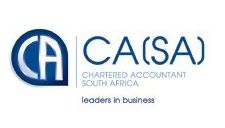SAICA:SMEs should consider using CAs(SA) as non-executive directors2013-09-12 Small business owners generally don’t need to answer to boards of directors, but the South African Institute of Chartered Accountants (SAICA) believes South African Chartered Accountants [CAs(SA)] can play an important advisory and governance role.
There is no question that large corporations need a board of directors; they are part of basic check and balance system that optimise performance and at the same time ensure governance. The board ensures that company strategy and practise, as performed by the executive, is in the best interests of the shareholders. In Small and Medium Enterprises (SME), however, the owner might be shareholder, CEO and board all rolled into one. This makes practical and financial sense, given the size of the operation, but it makes it all too easy for entrepreneurs to come up with ideas and often to invest without the due diligence, and the hard questions that independent directors bring to bear in larger concerns. Bridgitte Kriel, SAICA’s Project Director: Small and Medium Practises says this is one of the reasons for SME failure, stating that SAICA believes these businesses could still benefit from CAs(SA) performing the practical, if not the legal role of a non-executive director â€" and South Africa’s major funders agree with them. “SAICA isn’t suggesting that small businesses necessarily make this a formal appointment, but that CAs(SA) are retained to act as an advisor and to provide a useful external and independent perspective, similar to the role a non-executive director would play,†comments Kriel. This position is backed up by research SAICA has conducted on five major banks and three specialist SME lenders, in which most of the respondents indicated that they found financial statements prepared by CAs(SA) more trustworthy than those prepared by the businesses themselves, or by other independent accountants. “The letters behind the name make a big difference to us,†says Scott Brown, Group Credit Risk of Investec. Oversight improves financial fitness Kriel confirms that advice in securing credit is not the only value a CA(SA) can offer SMEs. “They have specialised financial skills the average business owner may not have, so they’re invaluable when performing cash flow analysis and assessing risks, for example. They can weigh up the tax implications of proposed strategies, and advise on the best use of available capital while anticipating financial pitfalls.†The idea of employing their skills in “non-executive director roles†has received support from specialist SME lenders especially. “It would be a significant value-add,†says Thakhani Makhuvha Chief Executive Officer of the Small Enterprises Finance Agency. “A small company might not be able to understand the risks that they are facing â€" it might be in invoicing, creditors, filing, following up with the debtors, etc. An audit firm that will provide that will definitely be adding value to the small business â€" if those risks are identified and mitigated, it gives us a firm degree of confidence. You don’t have to be appointed a director to hold meetings on a regular basis, just an independent person who is behaving like a director; questioning the strategy and viability of the business on an on-going basis.†“Even if you’re talking only from an enterprise risk-assessment perspective, a qualified CA(SA) in that role is of value,†says Christo Botes Executive Director of Business Partners. “Enterprise risk includes a lot of factors; at least you have gone through the logic to limit those risks.†Windfall reinvestment “Many small business owners were delighted by the change in company regulations that allowed them to select an independent review instead of an audit â€" as a review represents a saving in overheads â€" even though it’s a saving of approximately 20 or 30%,†says Kriel, explaining, however, that the benefits a CA(SA) performing a ‘non-executive director’ role can provide to an SME, from external vetting of business plans to facilitating the smooth acquisition of credit, suggest that a re-allocation of the audit budget might be preferable to cutting it. “SAICA is urging small business owners to consider investing their savings on audits in a commodity that will never lose value: useful advice,†Kriel concludes. |
SAICA:SMEs should consider using CAs(SA) as non-executive directors
Copyright © 2024 KwaZulu-Natal Top Business
